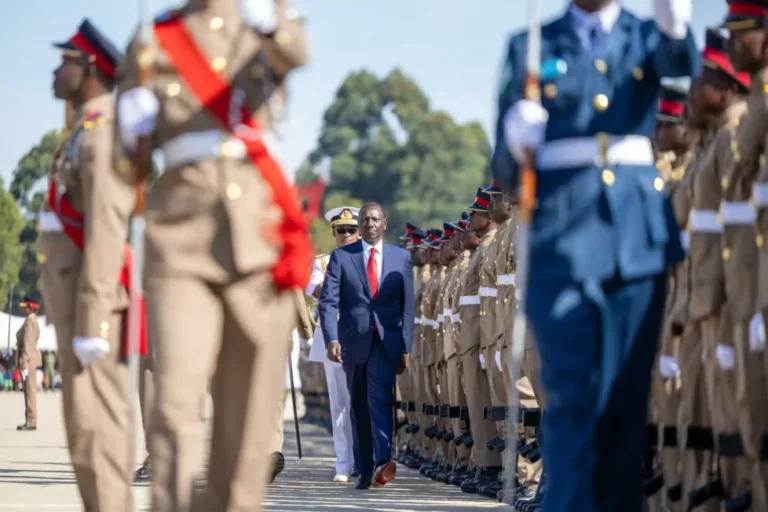The last few weeks have been very tough for the military in Kenya. In particular, it contended with an unprecedented development.
Never before in its history has the military buried a sitting chief of defence forces. The untimely demise of Major General Francis Ogolla threw the military establishment into uncharted territory. But besides the loss, the military also made news for not-so-honourable reasons.
Troubling Incidents and Reputation
In Turkana, there were reports of conflict between military officers and the police, with the former reportedly raiding a police station to free their colleagues who had been arrested.
Not long after, related reports emerged of a similar disagreement at the Likoni crossing channel between military staff and the police.
Reputed for discipline and bearers of the country’s honour, the troubling incidences have the potential of soiling the much-vaunted reputation of our soldiers. Whereas differences between the military and internal security agencies are not entirely new, the recent frequency invites critical questioning.
Increased Military Deployment in Civilian Spaces
Recent trends have witnessed increased use of the military in civilian spaces and for domestic assignments. This has especially been so since President Ruto assumed his place as the country’s Commander in Chief.
Not long after being sworn in, he ordered the involvement of the military in addressing the protracted banditry problem in the North Rift. Deployed alongside the internal security agencies, the deployment was not without tensions. Chain of command challenges were reportedly central to the tensions.
Within the same operational context, the President ordered the military to take the lead in the restoration of schooling infrastructure in the region. General Ogolla met his death while executing the President’s order.
The military’s deployment in the operation against banditry has not gone unchallenged. The opposition has repeatedly faulted the move, arguing that by not subjecting it to Parliament’s approval, it contravenes the law.
Most recently, the opposition faulted President Ruto’s order for the deployment of the military to West Pokot. He made the order while commissioning a Devki group-owned clinker plant. The government argues that the military is incorporated into a police-led operation and thereby needs no Parliamentary approval.
President Ruto’s favoured approach comes as no surprise. He showed his preference way before becoming Commander in Chief. Early on as Deputy President, he ordered the deployment of the military to Marsabit for disarmament following inter-clan violence that claimed casualties.
Parliament came out strongly to oppose the decision, arguing that it lacked constitutional and legal backing.
Strategic Considerations and Perception
Legal arguments and counterarguments aside, the question that begs is whether it is wise, or even strategic, to resort to the military as an immediate option for domestic challenges, especially security-related challenges. Doesn’t it inevitably occasion degradation of the military’s power and prestige, partly associated with their rarity in civilian sight and spaces?
Assuming their direct involvement in domestic security operations struggles to register success, what does that portend for their perception, especially in the eyes of foreign enemies?
Familiarity, it is said, breeds contempt. There is the real risk that continued use of the military as a low-hanging option for domestic reasons erodes the pride and power of the military.
The President should take a step back and review the place of the military in his security philosophy. The current path, I’m afraid, risks eroding the military’s prestige and strategic positioning. A better option would be to upgrade the capacity of internal security agencies both through enhanced training and the provision of equipment suitable to address target domestic security challenges.
While at it, I am not sure what it serves to have a Chief of Defence Forces (CDF) being present almost always at the airport as the President leaves the country. It’s part of purposeless legacy habits that need to be abandoned.




